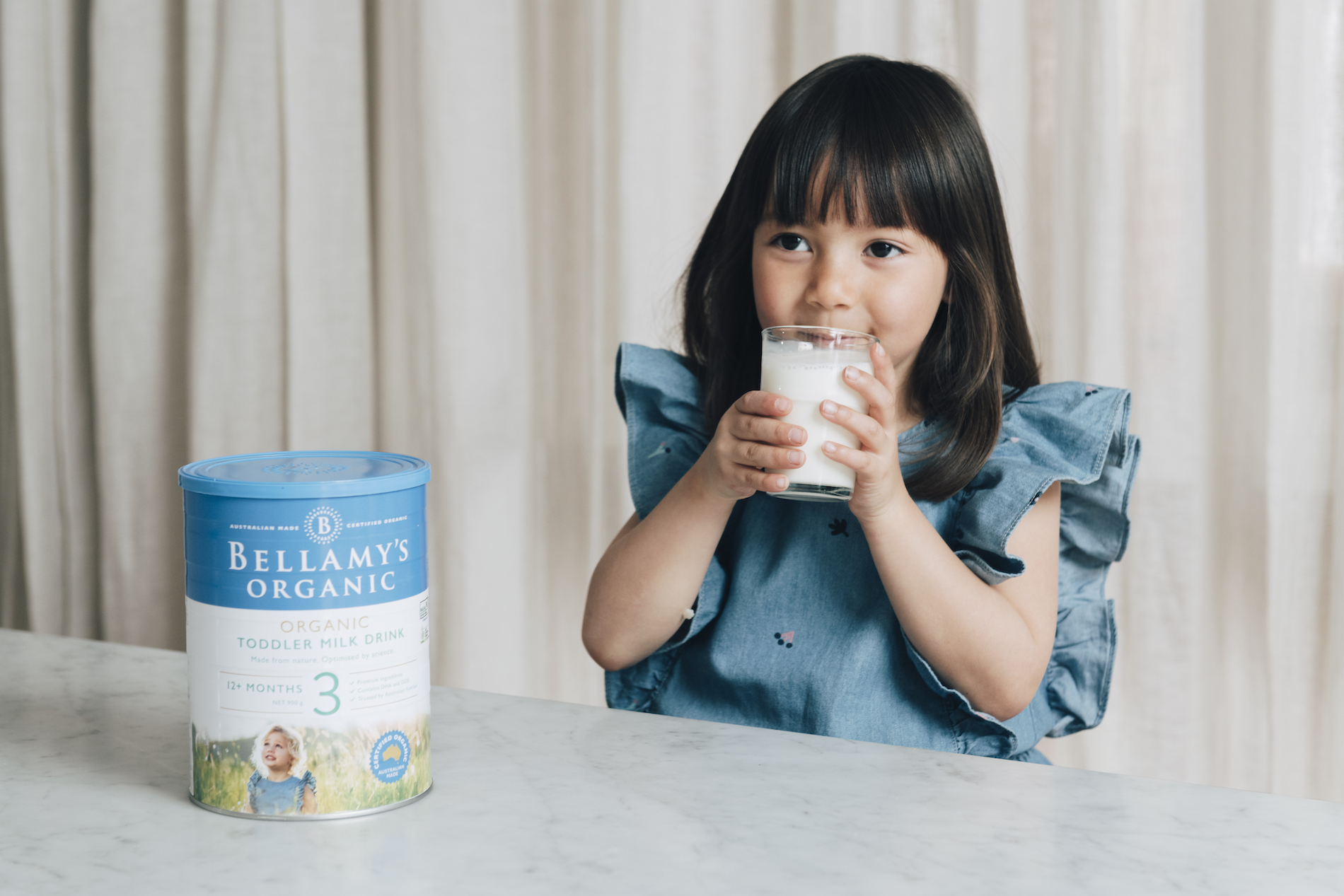When to Switch From On-Demand to Scheduled Feeding
There is no doubt that on-demand feeding can be really tiring for mums. Yet research now indicates that it is ...
Read MoreImportant notice to customers — product packaging changesLearn More
NEW FOOD PACKAGING IN STORE NOW
From August 2018, customers will notice our rebranded food packaging start to appear on shelf in all major stockists.
 CURRENT Packaging
CURRENT Packaging

 new Packaging
new Packaging
We are excited to announce our new packaging will start to appear on shelf from August 2018. This transition to new packaging will occur over a number of months. During this time there will be a mix of current and new packaging on shelf.
There are no major changes to these products, in some instances there is a small name change or slight recipe improvement, see below for the full details.
Products purchased via the website will be delivered to customers in our old packaging until the end of October. From November, products ordered from the website will be delivered in the new packaging.
Please note, our Infant Formula packaging will not be rebranded until later in 2019.
For any questions, connect with our team of accredited practising Dietitians on +61 3 6332 9200
Product name changes
 CURRENT Packaging
Organic Baby Rice
CURRENT Packaging
Organic Baby Rice

 NEW Packaging
Organic Rice with Prebiotic (GOS)
Note: Our Baby Rice recipe has been upgraded to now include GOS Prebiotic
NEW Packaging
Organic Rice with Prebiotic (GOS)
Note: Our Baby Rice recipe has been upgraded to now include GOS Prebiotic
 CURRENT Packaging
Organic Vanilla Rice Custard
CURRENT Packaging
Organic Vanilla Rice Custard

 NEW Packaging
Organic Milk & Vanilla Baby Rice
NEW Packaging
Organic Milk & Vanilla Baby Rice
 CURRENT Packaging
Organic Apple & Cinnamon Porridge
CURRENT Packaging
Organic Apple & Cinnamon Porridge

 NEW Packaging
Organic Apple & Cinnamon Baby Porridge
NEW Packaging
Organic Apple & Cinnamon Baby Porridge
 CURRENT Packaging
Organic Banana, Pear & Mango
CURRENT Packaging
Organic Banana, Pear & Mango

 New Packaging
Organic Banana, Pear, Apple & Mango
New Packaging
Organic Banana, Pear, Apple & Mango
 CURRENT Packaging
Organic Mango, Blueberry & Apple
CURRENT Packaging
Organic Mango, Blueberry & Apple

 New Packaging
Organic Blueberry, Mango & Apple
New Packaging
Organic Blueberry, Mango & Apple
 CURRENT Packaging
Organic Peach & Apple
CURRENT Packaging
Organic Peach & Apple

 New Packaging
Organic Grape, Apple & Peach
New Packaging
Organic Grape, Apple & Peach
 CURRENT Packaging
Organic Pumpkin & Tomato Risotto
CURRENT Packaging
Organic Pumpkin & Tomato Risotto

 New Packaging
Organic Pumpkin, Sweet Potato & Tomato
New Packaging
Organic Pumpkin, Sweet Potato & Tomato
 CURRENT Packaging
Organic Broccoli, Beef & Brown Rice
CURRENT Packaging
Organic Broccoli, Beef & Brown Rice

 New Packaging
Organic Beef & Vegetables
New Packaging
Organic Beef & Vegetables
 CURRENT Packaging
Organic Milk Rusks Toothiepegs
CURRENT Packaging
Organic Milk Rusks Toothiepegs

 New Packaging
Organic Milk Rusks
New Packaging
Organic Milk Rusks

Babies can learn to use a cup from an early age and are usually ready to try from around six months. So, when your baby is around six months old, you can start using a feeding cup to teach your bub how to sip drinks from a cup.
Try aim to stop using bottles by the time your baby turns 12 months old. Feeding bottles with teats are for use with breast milk or infant formula during the infants first year and are only recommended for 12 months. Continued use of a bottle after 12 months of age, often results in:
Allowing your little one to practice daily will help them give up the bottle at 12 months of age. Babies who continue to drink from the bottle well into the second year may drink a lot of milk and have a reduced appetite for other nutritious foods. Less reliance on bottle feeds of milk makes it easier for toddlers to become good eaters.
Every baby is different! When transitioning to a cup, some babies will like to progress from bottle-feeding to cup-feeding, while breastfed babies may skip using a bottle completely and start using a cup, often while continuing to breastfeed.
Lightweight plastic or bamboo (that won’t break easily!) trainer cups with a simple spout and two handles are an practical and easy to clean choice. Training cups should only be used for a short time, while babies continue to practice drinking from an open cup.
Best to avoid cups with teats, spouts and valves, as these only require them to suck rather than sip, which doesn’t teach them drinking skills. Teats, spouts and values can also easily end up for longer periods of time in their mouths and milk around their teeth, increasing the risk of tooth decay.
When your baby starts food at around six months, they can have a small amount of cooled boiled water from a cup or if you’re formula feeding or expressing breast milk, these can also be feed in a cup. You should continue to thoroughly wash the cups until your baby is 12 months old.
By around 12 of age most babies can manage a cup well enough to satisfy their own thirst, and the bottle can be stopped. Water and milk should always be offered in a small cup after food. This also helps toddlers to learn a new habit of having milk from a cup after their dinner instead of expecting a bottle of milk at bedtime. Stopping the bottle is often difficult for babies and parents, so here are some tips to break away from the bottle:
Just like learning to eat, learning to drink from a cup can be a slow and messy process. At first, they will need to use two hands and there may be some spills but keep your cool, they will get the hang of it soon.